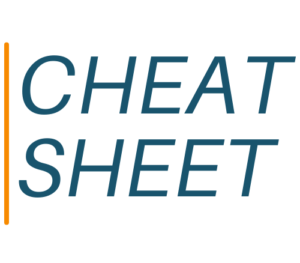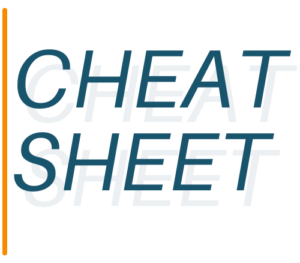
Cheat Sheet: DC-Based Financial Regulation Targets
You need to be logged in to view this content. Please Log In. Not a Member? Join Us

You need to be logged in to view this content. Please Log In. Not a Member? Join Us

You need to be logged in to view this content. Please Log In. Not a Member? Join Us

You need to be logged in to view this content. Please Log In. Not a Member? Join Us

You need to be logged in to view this content. Please Log In. Not a Member? Join Us

Here’s a cheat sheet on whom to approach and pitch in selected Tier 1 event operations, updated from the Jan. 2024 version. Unlike reporters, event influencers have no content to review.

This grid contains the latest intel on who might place your contributed post. It stays updated in great measure thanks to our kind subscribers, who keep us alerted to shifts and changes.

This cheat sheet focuses on who covers CTOs and the problems that they face. It doesn’t focus on job changes, e.g who was hired in inside the DC beltway.

You need to be logged in to view this content. Please Log In. Not a Member? Join Us

Here’s a cheat sheet comprising 11 reporters who recently covered a cybersecurity survey as news. We carried over three targets from our Sept. 2022 cheat sheet; all other names are new.

You need to be logged in to view this content. Please Log In. Not a Member? Join Us
YOUR ACCOUNT
FRIDGE NOTES
… and rarely reveals it. Roughly 45K opinion recent pieces from Washington Post, New York Times, and Wall Street Journal, are 6.4 times more likely to contain AI-generated content than news articles from the same publications, with many AI-flagged op-eds authored by prominent public figures. Despite this prevalence, Cornell says, “we find that AI use is rarely disclosed: a manual audit of 100 AI-flagged articles found only five disclosures of AI use.”
From WebPro News: Romanian software marketplace Tekpon acquired The Next Web (TNW) from the Financial Times, rescuing the tech media brand from closure.
The day is coming that you will not be able to avoid framing the targets in terms of red or blue. So far you’ve been able to do that. Those days are coming to a close: large swaths of “the audience” are headed in this direction. If you don’t believe it, read this from Bloomberg. You will never see better reporting than this.
Superb reporting from Business Insider on what comes after Google Search. All the experts quizzed. The gist: these technologies and techniques are borderline mythical at this point.
In the latest installment of Sound Thinking...David Strom, a well-known IT reporter and security expert, discusses the threat of AI tricking security systems and luring them to catastrophe. What will that mean to editors? When will it happen? It’s not an if, it’s a when.
Good vision here from Jay Lauf. Interestingly, Jay suggests that B2B publishing will become a service business to B2B pros, providing value directly to individuals and organizations. Static content is dying very quickly. This is the point of the analysis from this great media organization.